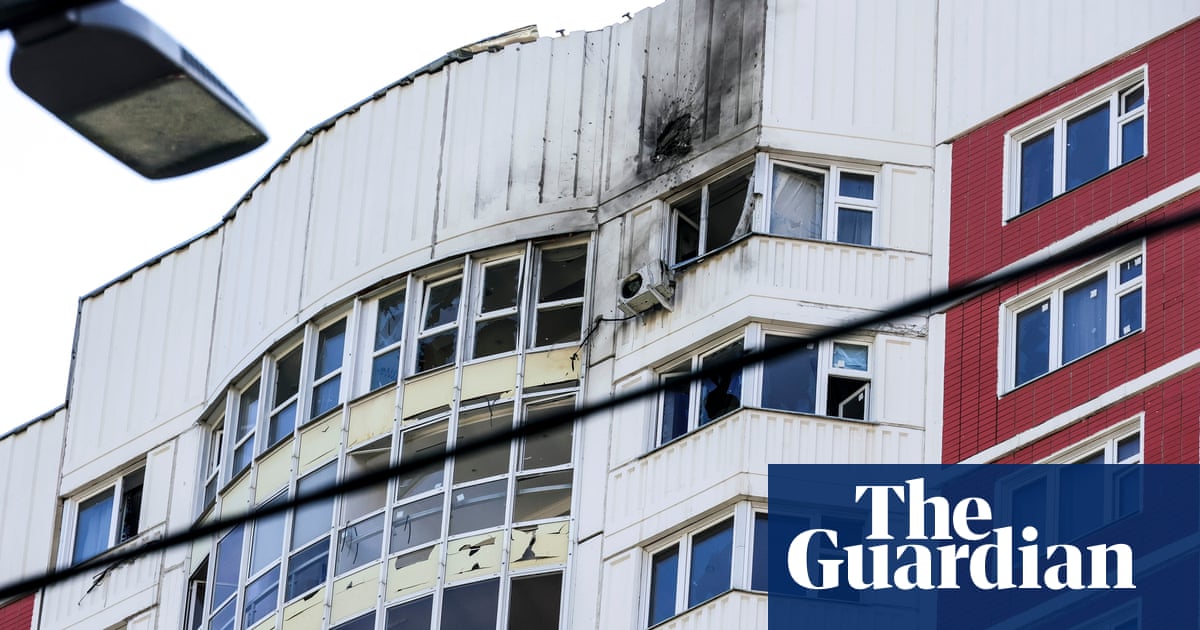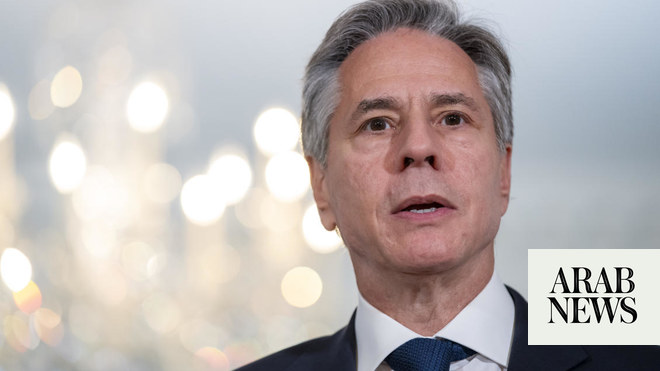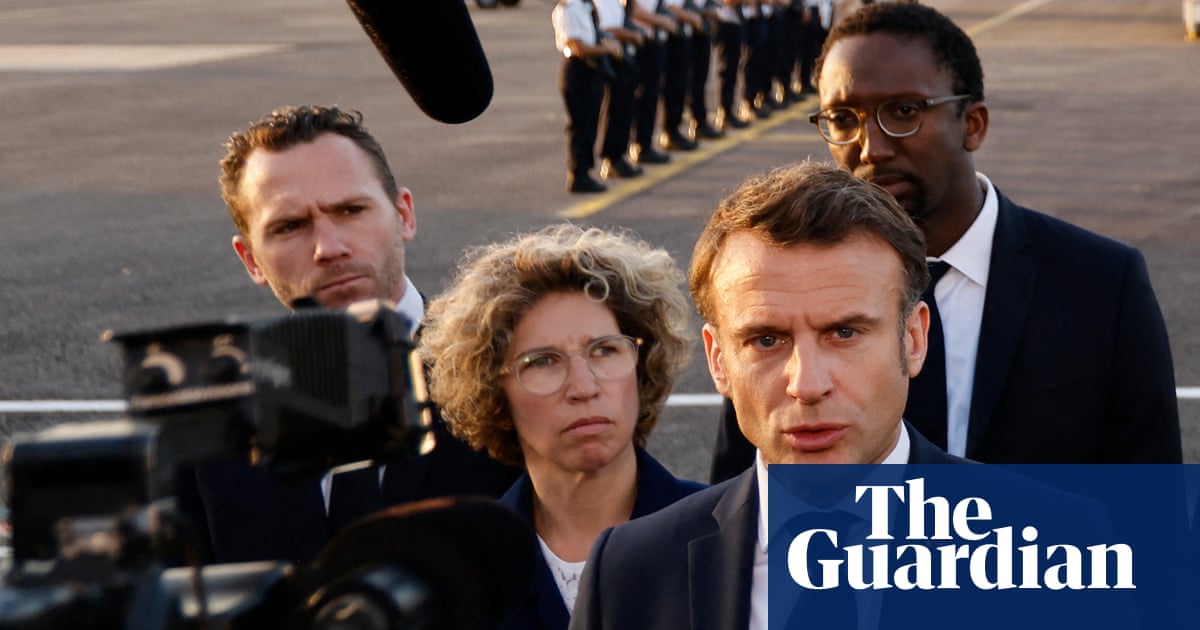
The US says it has evidence Russia has made plans for a “large scale” attack on Ukraine and that Nato allies are “prepared to impose severe costs” on Moscow if it attempts an invasion.
Speaking at a Nato ministers meeting in Latvia, the US secretary of state, Antony Blinken, said it was unclear whether Vladimir Putin had made a decision to invade but added: “He’s putting in place the capacity to do so in short order, should he so decide.
“So despite uncertainty about intention and timing, we must prepare for all contingencies while working to see to it that Russia reverses course.”
He said he had found solidarity among his fellow Nato ministers in the Latvian capital, Riga, saying the alliance was “prepared to impose severe costs for further Russian aggression in Ukraine” and would “reinforce its defences on the eastern flank”.
While repeating the US position that Washington is “unwavering in our support for Ukraine’s sovereignty and territorial integrity, and committed to our security partnership with Ukraine”, the secretary of state stopped well short of saying the US or the alliance would intervene militarily. “Should Russia follow the path of confrontation, when it comes to Ukraine, we’ve made clear that we will respond resolutely, including with a range of high impact economic measures that we have refrained from pursuing in the past,” Blinken said.
He did not specify the nature of those measures, but most observers believe that the Nord Stream 2 pipeline project, intended to bring Russian gas to Europe, could be cancelled if there is another invasion. The new German coalition government is already sceptical about the scheme.
Blinken said the US would spell out the consequences to Russia’s leaders “at the appropriate time”. His remarks represent the strongest warning from the Biden administration so far, and were delivered a day before Blinken is due to meet his Russian counterpart, Sergei Lavrov, in Stockholm under increasingly tense circumstances.
Blinken pointed to “evidence that Russia has made plans for significant aggressive moves against Ukraine”, adding those moves included “efforts to destabilise Ukraine from within, as well as large-scale military operations”.
Ukrainian government estimates of the number of troops near its borders range from 90,000 to 100,000. Russian forces staged two major military exercises in the region, in April and September, and each time left a significant number of troops and substantial supplies of equipment. Commercial satellites have shown concentrations of military vehicles.
Blinken pointed to other possible indicators of Russian intentions.
“In recent weeks, we’ve also observed a massive spike – more than tenfold – in social media activity pushing anti-Ukrainian propaganda, approaching levels last seen in the leadup to Russia’s invasion of Ukraine in 2014,” he said. He urged a return to diplomacy on the basis of the Minsk agreements of 2014 and 2015, involving a Russian withdrawal and greater autonomy for the Donetsk and Luhansk regions of eastern Ukraine.
The Kremlin has said Putin will shortly hold a summit with Joe Biden. The White House has signalled it is open to the idea but no date has been agreed. On Wednesday, Putin proposed holding negotiations to ensure Nato would not accept new members along Russia’s borders.
“In dialogue with the United States and its allies, we will insist on developing concrete agreements that exclude any further Nato advances to the east and the deployment of weapons systems threatening us in close proximity to Russian territory,” he said during a ceremony at the Kremlin. “We propose to start substantive negotiations on this matter.”
The suggestion that Russia and the US in effect hammer out spheres of influence was direct even for Putin, who has denied that Russia’s recent buildup near Ukraine is anything but defensive in nature.
The Biden administration is seeking to avoid being drawn into a situation where the US is negotiating Ukraine’s future over the heads of the government in Kyiv and its European neighbours. The policy emphasis has been on shoring up EU and Nato solidarity in the hope of deterring the Russian threat.
Blinken said that before meeting Lavrov on Thursday, he will have consulted his Nato counterparts and the Ukrainian foreign minister, Dmytro Kuleba.
“I think I’ll be able to reflect not just the view of the United States, but the view of all of the Nato allies, both in terms of the concern that we have, and as well the conviction that if Russia were to engage in further aggression against Ukraine, there would be serious consequences,” he told a Latvian television journalist.
The focus on the placement of weapons systems in eastern Europe also appeared to evoke earlier crises from his time in power, specifically the placement of air defence systems in Poland and Romania that Russia claimed could be a staging area for missile strikes on Moscow. Putin warned on Tuesday that Moscow could be forced to target Europe with missiles if air defence systems were sent to Ukraine.
The accession of former Soviet and communist countries into Nato has long been a bugbear of Putin’s, who has argued that the alliance violated assurances given to the Soviet leader Mikhail Gorbachev that it would not expand eastward.
Putin gave a seminal address at the Munich Security Conference in 2007 where he accused Nato powers of “a serious provocation that reduces the level of mutual trust”.











